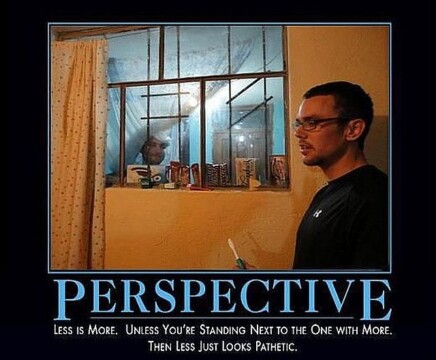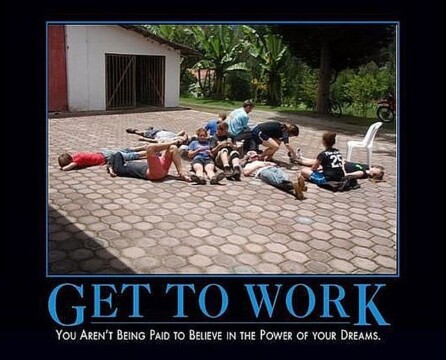
Mario Mendoza was a major league baseball player whose defensive skills overshadowed his meager offensive ability. Although Mr. Mendoza was a lifetime .215 hitter, it is generally agreed that the Mendoza Line, set at .200, is the lower limit below which a player’s presence in the big leagues cannot be justified, no matter how good his defense.
One of my major problems with religion in general and theology in particular is that people tend to suspend logical thought in favor of “feelings” and “what I’ve always been told.” It occurs to me that when it comes to judging the contributions of historical figures, we need to introduce some objective standard by which they can be judged. Why not adopt a Mendoza Line for theology, where if a figure is not batting better than .200, we don’t condone their presence on the field of theological reflection?
Take John Calvin, for instance. The contributions made by John to the overthrow of medieval Roman Catholicism cannot be overrated or underappreciated. By arguing for God’s sovereignty at the expense of all attempts to co-opt it, Calvin helped repudiate the notion that participation in indulgences, masses, pilgrimages and the like could somehow sway God and purchase salvation. For this we should be grateful. His followers, as is often the case after the death of a principal, have taken his already alarming ideas to even more distressing levels. The Synod of Dort, in 1618-9, gave rise to the five articles of Calvinism, captured by the acrostic TULIP. T stands for the total depravity of man, U for unconditional election, L for limited atonement, I for the irresistibility of grace, and P for the perseverance of the saints. Together the five have become the Shibboleth of the Protestant churches, and anyone who questions them is excoriated as “Arminian.”
So, briefly, how is Calvin, or at least “Calvinism,” doing?
Total depravity I get, sort of. This is the idea that, as Paul says, “I know that nothing good lives in me…” (Romans 7:18a) Pelagius was rightly ostracized for saying that although the Holy Spirit helps, it is still possible for us to obey God and his law through our own will power. Anybody who has tried to obey will quickly realize that what we need is not repair but replacement. If it is good, it has to be from God, for as Jesus says, “There is only One who is good.” ( Matthew 19:17) To the extent that I do anything good, it is not I who do it, but Christ who lives in me. (Galatians 2:20) On the other hand, we can still know good, even though we can’t do it. Paul said, “For in my inner being, I I delight in God’s law;” and “For what I do is not the good I want to do…” So we can have knowledge, we can have proper intent, but in execution we fall short. So a distinction needs to be made, as Richard Hooker did, between conscience, which is not fallen, and ability, which is. Not total depravity, but partial depravity. So far, half a point.
Now, about unconditional election. This is the notion that individuals are chosen for salvation, without regard to the will or actions of that person. Now in hindsight, you might have a point, where is can be said that a God who is outside of time can “know” what the future holds, but that is terminological inexactitude, to quote Churchill. We are bound by the fourth dimension, and it is useless, if not outright dangerous, to venture into the mind of God in terms of what he “knows.” The fact is, election is a poorly understood term in the Bible, and particularly for those who hail from the Western or Greek school of thought. Where in the Bible does election refer to an individual? Even when Paul uses Jacob and Esau as examples, they are but exemplars of those who submit to a wider divine plan of salvation and those who do not. (Romans 9:13) When do Paul and Peter rev up the talk about election and predestination, if not when talking to Gentiles about the “mystery of God,” his plan to include Jew and Gentile in one people? They are arguing that salvation is not something that is limited on the basis of genetics, but that is open to all who, like Jacob, submit to God’s plan for justifying and sanctifying a sinful and rebellious humanity. So on this count, Calvin whiffs. He’s now one for two.
Now, let’s look at perhaps the most pernicious tenet of all, that of limited atonement. This is the idea that the cross of Christ is limited in its power to justify some individuals, but not all. What treachery! Where in the Bible does it say that Jesus only died for some? I thought it said he died for the sins of the whole world (1 John 2:2,) and that it is God’s will that ALL men come to know the truth and find salvation. (1 Timothy 2:3) The basis for this appalling conclusion is the wrong notion of how God saves. Paul, to his eternal credit, makes a distinction between justification and salvation. (Romans 5:9.10, I Timothy 4:10b) All, says Paul, are justified by the cross. That is, there is nothing limited about atonement. What is limited, and this is where people get confused, is the latter event, that of salvation. We are not lost until we’re saved, we’re justified until we’re lost. God nowhere condemns on account of original sin, or sins he “foresees.” What happens is that if those who are justified by the cross of Christ continue to live according to the flesh and do not take advantage of the necessary life of the Spirit, they are disqualified from the salvation from the “coming wrath” to which Paul refers in his letters. (Romans, Ephesians, Colossians, 1 Thessalonians) Although it looks like the atonement of the cross is limited, it is not. There is no limit to the power of the blood of Christ! What is limited is the willingness of people to be honest with God about their own limitations (See Total Depravity of Man) and ask for help in the person of the Holy Spirit. We are not “saved” because of anything we do, we are “saved” when we stop doing something: protesting our innocence and challenging God’s moral rectitude. Another swing and a miss for Calvin.
So, number four, irresistibility of grace. This is the flip side of unconditional election, and as such, suffers from the same theological and logical defects. Here we have the belief that a person, chosen by God and therefore elect, cannot resist the ministry of the Holy Spirit and sin. Hogwash! I do this every day, and know in detail how easy this is to do! The Holy Spirit is a person, and a gentleman at that. He doesn’t insist on getting his way. Like any discreet guest, he offers his help, and if refused with any consistency, he simply decamps until such time as our attitude changes and we re-extend an invitation to him. What Paul argues in the whole of his testimony is that it is possible, indeed common, for people, even Christians, to resist God’s grace. Is this not what the Jews who killed Stephen were guilty of, and do not James and Peter both urge us to resist the enemy? Does our will, as polluted as it is, not count for something? Is God totally arbitrary, or does he not seek after men and women after his own heart, like David, who kept God’s commands and (often) did what was right? Again, in the final analysis, I suppose it’s possible to say that after a person dies, God’s grace prevailed in a life and has had His way. Fine. But the testimony of Scripture and the example of human experience suggests that man has one problem and one problem only, that he tends to resist God’s grace to be in actuality what he is, since Good Friday, legally. Another strikeout for John, and there’s still another matter to consider.
The final contention of the Synod of Dort was that the saints would persevere. This is also a modification of an earlier tenet, that of the irresistibility of grace. Put another way, we have the contention that “once saved, always saved.” Although this is a specious argument whose popularity is widespread, it is patently untrue. To repeat, our problem is not that something goes wrong with our justification by the blood of Christ. This is a standing fact that is, in the words of Donald Bloesch, “independent of our belief or response.” The problem arises when we, like the seed that falls on the path or in suspect soil, fail to allow the Holy Spirit to come in and do through us what we cannot do on our own. Thus, we fail to abide where the blood of Christ has put us, and are cut off and burned as unfruitful vines. We recommit Adam’s sin of deciding for ourselves what is right and wrong, and thereby disobey the injunction of the Bible that we be honest and ask for help. Blaspheming the Holy Spirit is the only unforgiveable sin, as it consists of resisting the testimony of God, the Bible, which was written by the Holy Spirit. Do saints fail to persevere? All the time. In a very real way, all are saints at birth, and the masses who fail to abide in Christ do not lose their salvation as much as they lose the benefits of justification; a very different thing.
So Calvin has been coming to the plate for almost 500 years, and four and a half out of five times he has failed to get on base. No walks, even. Let’s go back to Mario Mendoza. Here’s a man who was great on defense, but couldn’t hit a lick. He became the personification of offensive ineptitude, and has given his name to the measure of that unfortunate reality. If we ditch a player because of this offensive liability in baseball, shouldn’t we also have a standard in theology? According to this brief and cursory analysis of Calvinism, he’s at the Mendoza Line, batting one half out of five! Although we appreciate his defense against Rome, we can’t put up with his misleading and hurtful performance at the plate. What he offers is worse than what he got rid of. Time to trade for a better player, one who can give us consistent, reliable production, so that we can get this Christian team on its way to victory.















Recent Comments